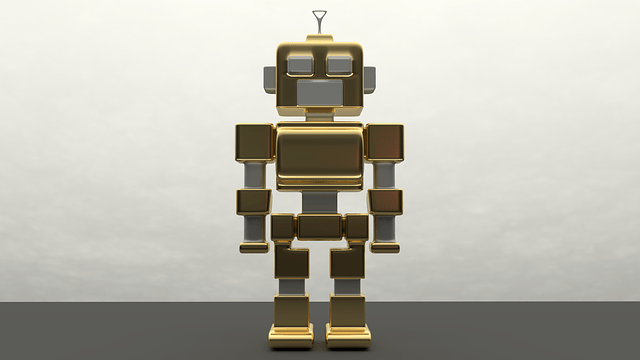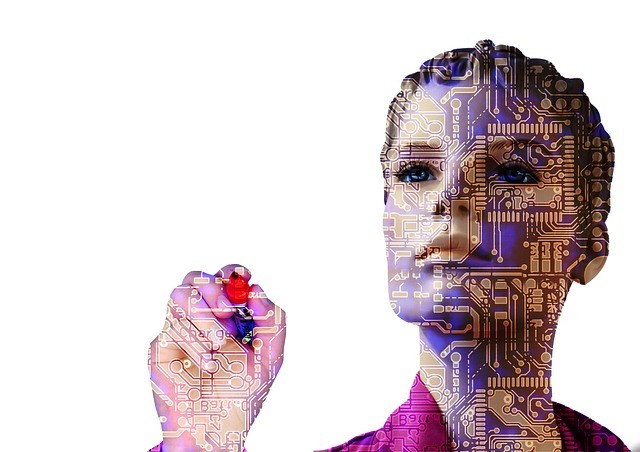Human Resources and Robotic Process Automation (RPA)
Google can do what encyclopedias used to do. Alexa can manage all sorts of household tasks from temperature control, lights and background music selections. Siri can answer almost any question and if s/he cannot, the attempts are often hilarious. Roomba gives Shark, Dyson and Central Vaccuum system a run for their money. Robotic use is making inroads everywhere including in human resources. Globally 88% of companies make use of artificial intelligence (AI) in human resources. Of this, 100% of Chinese and 83% of US companies rely on AI in some form including Hilton and Unilever. 59% of US companies plan to boost their use in the near future.
Robotic Process Automation uses software technology to process high volumes of data freeing human resource professionals for other tasks requiring a pulse. Some automated tasks can include:
Employee Relation, Compensation and Benefit Management
- The use of ‘Chatbots” are key to these 2 above points. Chatbots utilize software applications to conduct on-line text conversations. They are able to provide answers to a variety of frequently asked questions (FAQ’s). They are designed to resolve issues concerning policy, benefits changes, time off requests, etc. without tying up human time. These automated conversations add convenience for staff and consumers alike with little to no cost.
Training, Development and performance Management
- Identifying disenfranchised employees, posting internal openings or career path opportunities
Regulatory and Compliance
- Providing nearly error-free log keeping
Recruiting
- Most professionals have their resumes in PDF form and there are some companies that receive 1,000,000 resumes per year. Helping recruiters sort through and analyze mountains of data can generate accurate, specific, relevant data while reducing unconscious human bias. The use of RPA can give HR Professionals additional tools to locate the best possible candidates, liberating them from more mundane tasks and better utilizing their interpersonal skills.
Interviewing, Hiring and On-boarding
- Being interviewed by a robot is one more way companies are turning to AI to efficiency and reduce bias. The initial face-to-face experience is becoming automated. The idea is the same with a standardized set of questions and evaluation of the responses, but spontaneous follow-up dialogue is replaced by AI quantification. Algorithms are written to measure facial cues, word selection and voice intonation and the candidate is scored based upon that data.
Robotic job interviews are likely to enter the mainstream hiring practices in every field, not just healthcare. Preparation for an AI interview is a bit different in focus but not a reason for a reduction in preparation. Points to consider are:
- Small talk, firm handshakes and the ability to establish rapport are useless with a robot
- Body language does count. The recorded interview is analyzed by the algorithm for content as well as visual cues. Posture, tone of voice, eye contact and poise can be quantified. Robots can be programmed to read what is know as ‘micro-expressions.’ Those tiny, involuntary facial tics can give away a lot of information, just ask any trained interrogator from the FBI.
- Focus on key words. Performing due diligence with regards to the company is still a vital aspect of these interviews. It still pays to know the mission, focus and cultural buzz words.
- Do not treat this experience lightly. Don’t diminish its importance because at some point, it will be reviewed by a decision-making human being.
Robotic Process Automation Concerns
Algorithms can be created for many types of social cues but reading emotions across disparate cultures is concerning. There is a certain uniformity in emotional facial expressions that are culturally specific non-verbal communications. These varying expressions underscore the differences between nature (biology) and nurture (cultural context) and as such can be open to interpretation. Could algorithms illegally exclude certain people? Can your AI robot develop learning and thinking for itself based on past interviewing experiences interviewing similar candidates for similar positions? Any number of Sci-Fi movies have explored this possibility. In fact, in 2017 the EEOC issued a strategic enforcement plan citing the increasing use of data-driven selection devices.
How would this robotic interviewer measure ingenuity, creativity, business savvy, empathic ability or team spirit? Perhaps it is best used as the initial screening tool to vet best possible candidates in as neutral a setting as possible followed by the actual human in human resources. It is interesting to note that Illinois passed legislation addressing robotic interviews spelling out 4 main points:
- Employer must disclose to the applicant that AI may be used in analysis.
- Prior disclosure to the applicant explaining how AI works and the general traits and characteristics it can screen for.
- Applicants consent prior to the interview.
- Video interviews must be deleted within 30 days.
The intent appears to address the potential practical applications with privacy and legal ramifications.
Robotic Process Automation and robotic interviewing are a reality; one whose uses continue to unfold. These robotic systems can run 24/7/365. They won’t resign, take vacations or require OT pay. Knitting together the 4 main HR functions of staffing, training/development/motivation and maintenance is a win in anyone’s arena. It can perhaps reduce costs, errors and the on-boarding time it takes for healthcare executives to get up and running. RPA and robotic interviewing are not so much about decision making as they are assisting human resource professionals in achieving organizational success through its greatest resource, talented people.
NHS Solutions uses video interviews for virtually every candidate. We continue to have a human resource professional on the other side of the call. NHS Solutions is a small, dynamic and agile interim healthcare leadership staffing company and as such, we plan to continue with personal contact. We have embraced automation wherever possible without losing what makes NHS Solutions a key resource for both our candidates seeking assignments and our hospital clients with unique leadership challenges. Contact us to see how we can work together.


